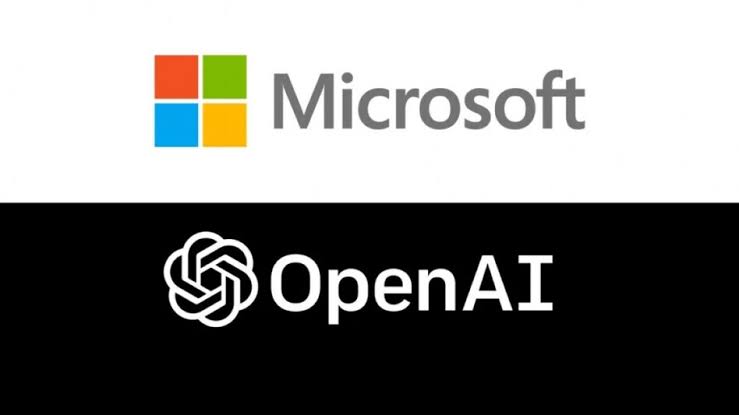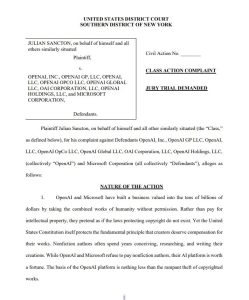
Authors Take Legal Action Against OpenAI, Microsoft
The unlawful utilization of nonfiction authors’ works to train AI models, including OpenAI’s ChatGPT service, is the subject of a lawsuit against OpenAI and Microsoft.
Julian Sancton, a journalist and author, sued the companies on November 21. Sancton has lodged a complaint alleging that OpenAI, training its extensive language models to respond to human text prompts, utilized tens of thousands of nonfiction books without proper authorization.
Leading a proposed class-action lawsuit that has been filed in a New York federal court is the author and editor of the Hollywood Reporter.

Screenshot of the lawsuit. Source: CourtListener
Authors including John Grisham, George R.R. Martin, and Jonathan Franzen have filed multiple lawsuits against OpenAI and other technology companies on behalf of copyright holders.
The purported misuse of their work to train AI systems is the subject of the allegations. The claims have been refuted by the implicated corporations.
As well as the development of generative, pre-trained transformer-based technology, Sancton’s lawsuit highlights Microsoft’s participation in the production of unauthorized duplicates of authors’ works for use as training data.
Additionally, Sancton accuses Microsoft of having knowledge of OpenAI’s indiscriminate search for copyrighted content on the internet. Microsoft’s unanticipated appointment of Sam Altman as the director of its new AI division after his departure from OpenAI coincides with the lawsuit.
On November 22, OpenAI unexpectedly disclosed a new agreement in which Altman would resume his position as CEO. In a post on its official X (previously Twitter) account, the organization verified the agreement.
Microsoft has largely evaded scrutiny despite introducing a variety of products that incorporate ChatGPT, in contrast to OpenAI, which is confronted with numerous copyright infringement lawsuits.
Sancton’s lawsuit against OpenAI is the first of its kind to name Microsoft as a defendant. Microsoft has integrated OpenAI’s systems into its product offerings after making significant investments in the AI startup.
Legal proceedings initiated by Sancton allege that OpenAI trained its GPT large language models using nonfiction literature, including his work Madhouse at the End of the Earth.
Complaint Microsoft is held liable for copyright infringement on the grounds of its alleged substantial involvement in model development.
Aside from an injunction to cease the alleged infringement, Sancton is also seeking unspecified monetary damages.
